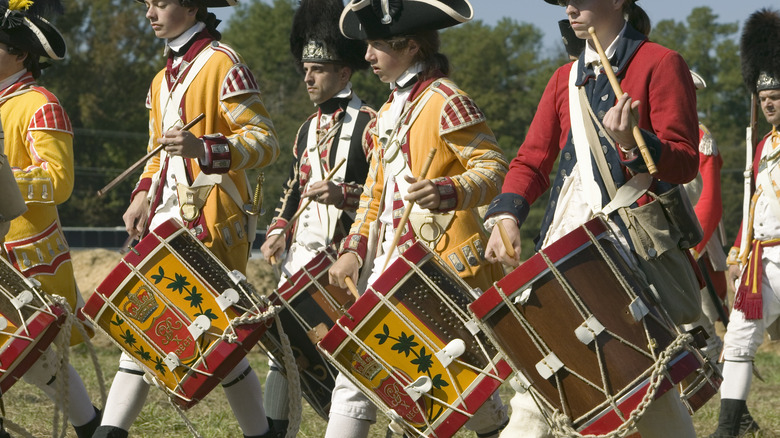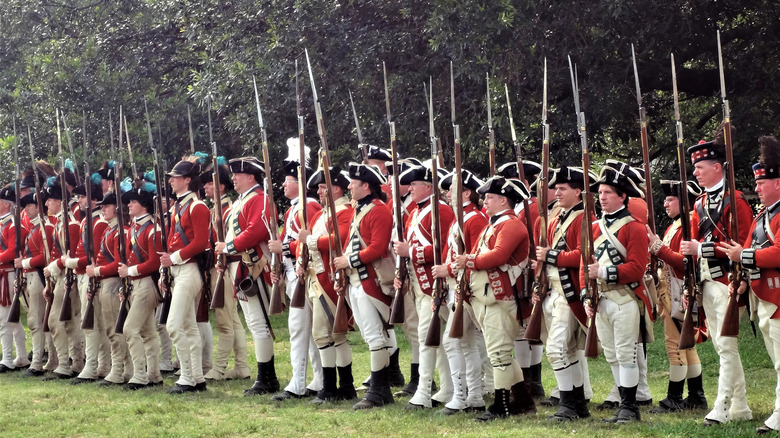How The French And Indian War Inspired Yankee Doodle
The term "Yankee" is best known as an insult-turned-descriptor word directed at Americans by British people, as well as by Confederate-era southerners towards northerners. According to the Wall Street Journal, the word has its origins in the Dutch name Janke or Jan, which the British initially used as a demeaning label for Dutch settlers. Over time though as hostilities grew between the British colonies and Parliament, Yankee came to be applied to all colonials.
The British would supposedly then go on to compose the song Yankee Doodle, only for their enemy to not only co-opt it but sing its lyrics with pride. While this is generally understood, many assume that Yankee Doodle was written and stolen during the American Revolution. That is not the case, as the song's transition instead occurred during the earlier French and Indian War, when British and Colonial troops were at odds but still technically allies (via History.com). This earlier time frame reflects the longstanding nature of tensions that would boil over into open revolt.
The British came up with Yankee Doodle to insult their allies
As NBC reports, the specific year of Yankee Doodle's composition is up for debate among historians, though there is consensus that it occurred in the latter half of the 1750s. Written by the aristocratic British army doctor Richard Shuckburgh, it was intended to berate colonial troops for their comparatively unkempt appearance and undisciplined combat performance. Despite colonial militiamen making up much of the total British forces, this did not stop British regular troops from using the Yankee Doodle to jeer at their compatriots.
With this song constantly reminding them of their divide, it is no wonder that their animosity grew to be untenable as taxation was imposed upon them to pay for Britain's subsequent war debt. The lyrics describing them as vain simpletons saw variation throughout the years as it was used by both sides during the Revolution. In 1781, the colonies finally took the song's lyrics out of British mouths as they played it after their victory at Yorktown, recognized by many as the end of the war and British rule.

